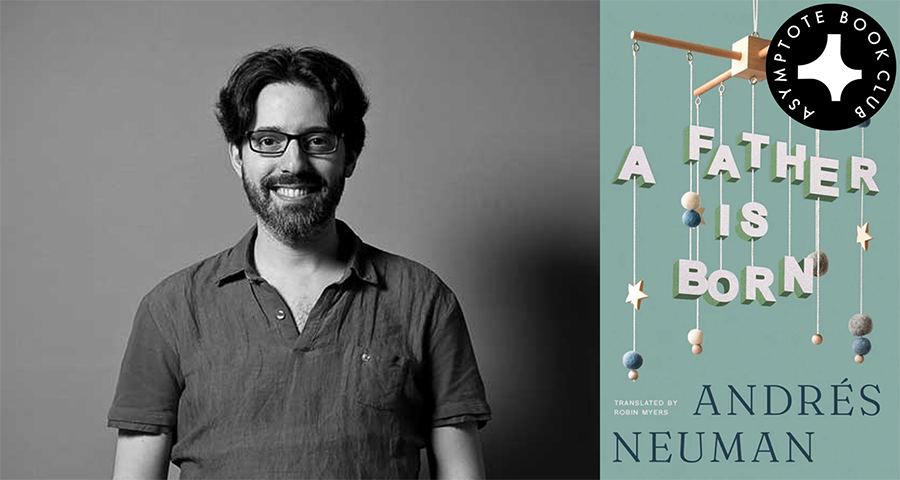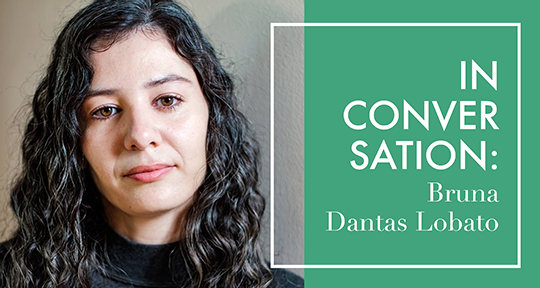In his latest and perhaps most personal work, Argentine writer Andrés Neuman probes his newfound role as a father, reckoning with the masculine and the paternal with trepidation, honesty, and most of all, wonder. The arrival of a child is here fortified with the poetry of discoveries—developing ultrasounds, the first tentative words—and the sublime language of an expanded self, as both father and son come to find their new places in the world. At once a universal and a deeply private story, A Father is Born is a testament to where the mind goes when it is led by love.
The Asymptote Book Club aspires to bring the best in translated fiction every month to readers around the world. You can sign up to receive next month’s selection on our website for as little as USD20 per book; once you’re a member, join our Facebook group for exclusive book club discussions and receive invitations to our members-only Zoom interviews with the author or the translator of each title.
A Father is Born by Andrés Neuman, translated from the Spanish by Robin Myers, Open Letter, 2025
Andrés Neuman’s bios often begin by describing him as a son—specifically, that of Argentinian musicians who emigrated to Spain in the early 1990s. This intimate history has previously been explored in his writing, including in a collection of poetry about his dying mother, as well as a novel based on the dictatorship suffered by his family in Argentina. Now, continuing this occupation with lineage is a book that sees him wrested into a different position within the family: as a father to his newborn baby. A Father is Born was originally two separate texts, but arrives in English as a happy side effect of their translation by Robin Myers. The first, Umbilical, is a patient and forensic study of his and, to a lesser extent, his partner’s experience of expecting and then raising their child, Telmo, while the second, Small Speaker, explores the boy’s first forays into language and the mysterious assembly of a lexicon.
‘Little by little, I’m birthed as I speak to you.’ Each page of A Father is Born is akin to a poetic diary entry, ranging from the descriptive to the self-reflective. In the first section of Umbilical, titled ‘The Imagination’, Neuman explores the psychic nature of the fatherly bond pre-partum, detailing the subconscious effort of conjuring a loving connection to his future child. These opening chapters hum with the low frequency worries of a figure who knows about the precarity of life and miraculous ‘overlapping fates’ of ancestry: ‘. . . hands over hands over hands.’ In his wanderings around an expectant house, he realises how such fragility applies to the story he is building,
“More than their creator, I feel like their host,” your mother confesses.
Now I imagine us in concentric circles: you travel within a reality within our reality, which exists within ceaseless curves. What am I, then, in this home where your mother’s womb rocks and sways? Who do I inhabit?



